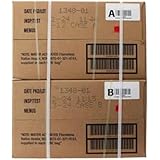Table of Contents
- Self-Reliance Through Alternative Energy Sources
- Hand Tools and Manual Techniques
- Skills for Sustainable Living
- The Importance of Community and Networking
Self-Reliance Through Alternative Energy Sources
Maintaining self-reliance without electricity doesn’t mean you have to live in darkness. There’s a bunch of alternative energy sources you can tap into to keep things running smoothly. Solar power is a standout option. I’ve switched to it and haven’t looked back since. The initial investment might seem hefty, but the long-term benefits? Totally worth it.
Wind energy is another fantastic alternative. Living in a breezy area? You’ve got this natural resource right at your fingertips. Setting up a small wind turbine can provide you with a substantial amount of power, enough to handle your basic needs. The best part? It’s environmentally friendly.
Don’t forget about the humble generator. While not as clean as wind or solar, it’s a reliable backup. Plus, with models available that run on biofuels, you can still be eco-conscious. Set it to kick in during emergencies, and you’ll never be caught off guard.
Hand Tools and Manual Techniques
Electric tools are convenient, sure. But hand tools? They can be just as effective if you know how to use them right. When I made the shift, it was a learning curve, but boy, was it rewarding. For woodworking, a good saw, chisel, and hammer can work wonders.
Gardening can thrive without electricity. Ever tried a manual tiller or hand hoe? They’re amazing. Not only do they get the job done, but they also give you a bit of a workout. Plus, there’s something oddly satisfying about doing it the old-school way. You feel more connected to the earth.
Then there’s cooking. Ditch the electric stove; go for a traditional fire pit or propane stove. Cooking over an open flame is an art form. I’ve created some of my tastiest meals this way. Pro tip: cast iron pans are your best friends here.
== > What if ... Get a FREE Subscription to PREPARE
Skills for Sustainable Living
Living sustainably is key to maintaining self-reliance without electricity. Start with gardening. Growing your own veggies not only cuts down on grocery bills but ensures you always have fresh produce. I began with tomatoes and herbs – they’re easy and don’t demand much.
Preserving food is another crucial skill. Canning, drying, and pickling are lifesavers. When I first started, I was intimidated. But once you get the hang of it, it becomes second nature. Imagine enjoying summer fruits in the deep winter – it’s magical.
Let’s talk about water. Harvesting rainwater can cover a lot of your needs. I set up barrels to capture rainwater runoff from my roof. Filtering and purifying it felt like a daunting task at first, but it’s become routine. It’s incredible how resourceful we can be when we put our minds to it.
The Importance of Community and Networking
Going it alone is tough. Trust me, I’ve tried. But having a robust community and network can make a huge difference. Sharing resources, knowledge, and support is invaluable. When I needed to learn a new skill or borrow a tool, neighbors were there to help.
Engage with local community groups. I joined a local barter group, and it’s been a game-changer. Swapping goods and services without money involved fosters a sense of camaraderie and trust. Plus, it’s heartening to see people come together to support one another.
Don’t underestimate the power of online communities too. Forums and social media groups dedicated to off-grid living are treasure troves of information. When I hit a snag or needed advice, these digital communities provided quick and often innovative solutions.
FAQ
1. Can solar panels provide enough energy for all my needs?
Yes, solar panels can provide enough energy, but it depends on your consumption and panel capacity. You’ll need to calculate your energy needs and ensure your panels and batteries can handle it.
2. How can I learn to use manual tools effectively?
Practice and patience are key. Start with simple projects, watch tutorials, or even take a local workshop. The more you use them, the more skilled you’ll become.
3. What is the easiest sustainable living skill to start with?
Gardening is a great entry point. Start with a small herb garden or a few easy-to-grow vegetables. It’s rewarding and gives you a direct connection to your food source.
4. How do I connect with a local community focused on self-reliance?
Look for local groups on social media, attend farmers’ markets, or join community events. Word-of-mouth can also be a great way to find like-minded individuals.






